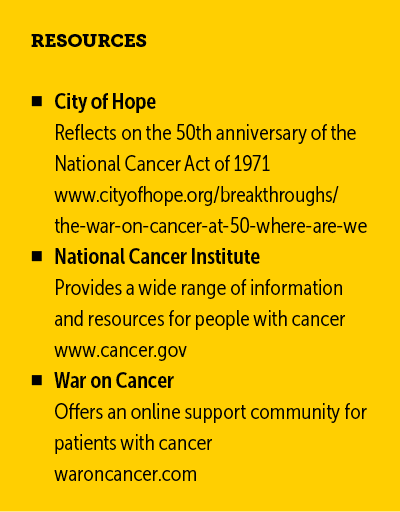What Is the Role of the Oncology Nurse Leader in Building Oncology Nursing Capacity in Malawi?
As someone who wanted to make others smile, I realized that nursing was the only profession that could help me achieve my purpose. The realization of my love of nursing unfolded when I entered the Kamuzu College of Nursing in 2008. As a nursing student, I wanted to provide excellent nursing care. In my third year of my BScN studies, I had a clinical home-based rotation in Lilongwe, Malawi, where I was introduced to chronically ill patients. I realized that this chronically ill population was the most neglected in Malawi, similar to populations in other sub-Saharan African countries. My exposure to home-based community care redirected my passion to this population. After graduating with my BScN, I worked in a hospital’s intensive care unit for two years, where I gained advanced skills and experience in the care of critically ill patients. My interest in oncology nursing began when I cared for a pediatric patient with Burkitt lymphoma who had large masses on the head and died from nasal bleeding. I felt that I did not have the knowledge to care for this patient and felt defeated. From that experience, I desired more knowledge about cancer, which led me to oncology nursing.
Jump to a section
As someone who wanted to make others smile, I realized that nursing was the only profession that could help me achieve my purpose. The realization of my love of nursing unfolded when I entered the Kamuzu College of Nursing in 2008. As a nursing student, I wanted to provide excellent nursing care. In my third year of my BScN studies, I had a clinical home-based rotation in Lilongwe, Malawi, where I was introduced to chronically ill patients. I realized that this chronically ill population was the most neglected in Malawi, similar to populations in other sub-Saharan African countries. My exposure to home-based community care redirected my passion to this population. After graduating with my BScN, I worked in a hospital’s intensive care unit for two years, where I gained advanced skills and experience in the care of critically ill patients. My interest in oncology nursing began when I cared for a pediatric patient with Burkitt lymphoma who had large masses on the head and died from nasal bleeding. I felt that I did not have the knowledge to care for this patient and felt defeated. From that experience, I desired more knowledge about cancer, which led me to oncology nursing.
In 2016, I enrolled in an MScN program specializing in oncology at the University of the Witwatersrand in Johannesburg, South Africa, and completed 1,000 clinical hours in oncology nursing care. My MScN program was sponsored by the government of Malawi to develop human resources for the national cancer center. I learned concepts of palliative care and how they applied to the care of adults with cancer. My thesis, Living With Cancer of the Head and Neck: A Qualitative Inquiry Into the Experiences of South African Patients, focused on how cancer affects important functions of the body, such as breathing and eating, and causes facial disfigurement. While practicing oncology nursing at Charlotte Maxeke Hospital in South Africa, I assessed and counseled a patient with cancer of the larynx who had uncontrollable pain and was being managed with morphine. I was intrigued to observe that psychotherapy could contribute to pain relief. Generating new knowledge and advancing oncology nursing is an area of interest, and my career goal is to obtain a PhD so I can better understand how to provide evidence-based and quality oncology nursing care in Malawi.
With the opening of the National Cancer Center of Malawi in Lilongwe, opportunities exist for the development and growth of oncology nursing. Being the first to be trained as an oncology nursing officer with an MScN in Malawi, it is essential to develop and implement oncology nursing standards for the national cancer center and impart oncology nursing knowledge and skills to other nurses. One major challenge to providing quality oncology nursing care is the lack of oncology nursing education in BScN programs and post–nursing school graduation. As an oncology nurse leader, my role and responsibilities are to coordinate oncology care, ensure patient and personnel safety, develop policy and guidelines, ensure availability of chemotherapies, compound and administer chemotherapies, and provide psychosocial care to patients. Challenges include working with nurses and physicians with little knowledge of oncology care, their limited knowledge of personal protective equipment, and a shortage of supportive medications and supplies. The chief nursing officer for oncology services and I are grateful for the ongoing support of the University of North Carolina School of Nursing and Lineberger Comprehensive Cancer Center in training and developing evidence-based oncology nursing policies and procedures. We are also appreciative of the Oncology Nursing Society for the generous book donations. I am confident that we will have oncology education and clinical training in Malawian nursing schools, regular in-services about caring for adults with cancer and their caregivers, and intensified cancer awareness in Malawian communities. 
About the Author(s)
Samuel Bingo, BScN, MScN, is an oncology nursing officer at Malawi Ministry of Health Kamuzu Central Hospital in Malawi, Central Africa. Bingo can be reached at josephbingo26@gmail.com, with copy to CJONEditor@ons.org.




